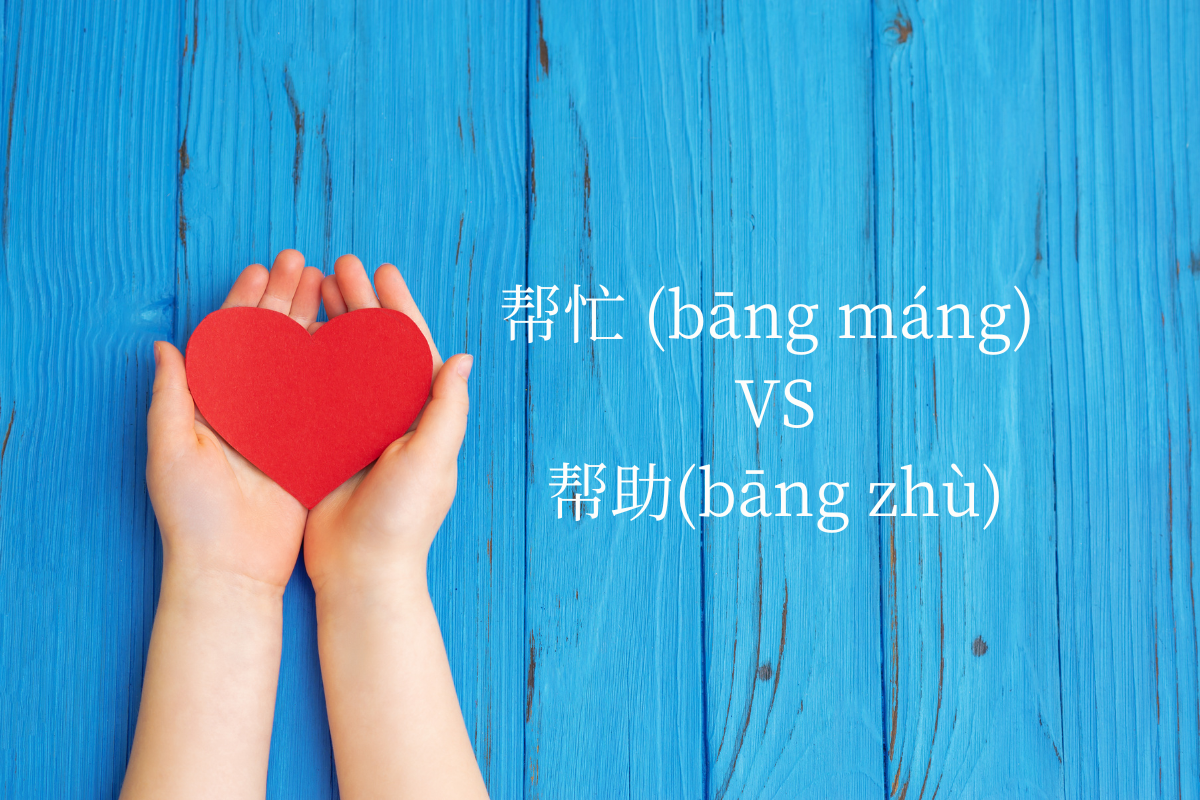HSK Words: 帮忙 (bāng máng) VS 帮助 (bāng zhù)
In this article, we will explore the differences between two HSK words: 帮忙 (bāng máng) and 帮助 (bāng zhù). Although these words may seem similar, their meanings are distinct, and understanding the differences will help you use these words accurately in daily Chinese communication.

帮忙 (bāng máng) is a verb that means to assist or give a hand, often in a specific task or project. It implies that the person or group being assisted is in need of extra help or support.
Examples:
- Can you help me with a favor tomorrow?
明天你可以帮我个忙吗?
Míng tiān nǐ kě yǐ bāng wǒ gè máng ma ? - Thanks to his assistance, we were able to complete the task.
多亏了他帮忙,我们才完成了任务。
duō kuī tā bāng máng , wǒ men cái wán chéng le rèn wù 。 - They are helping each other move things.
他们两个在互相帮忙搬东西。
tā men liǎng gè zài hù xiāng bāng máng bān dōng xī 。
On the other hand, 帮助 (bāng zhù) is a verb that means to assist or support in a broader sense. It can be used to describe providing guidance, advice, or financial assistance, among others. It is more general than 帮忙 (bāng máng) and often implies a deeper level of support or involvement.
Examples:
- I can help you solve this problem.
我可以帮助你解决这个问题。
wǒ kě yǐ bāng zhù nǐ jiě jué zhè gè wèn tí 。 - He often helps others and is a kind-hearted person.
他经常帮助别人,是一位热心肠的人。
tā jīng cháng bāng zhù bié rén , shì yī wèi rè xīn cháng de rén 。 - This phone can help you better manage your life.
这款手机可以帮助你更好地管理你的生活。
zhè kuǎn shǒu jī kě yǐ bāng zhù nǐ gèng hǎo dì guǎn lǐ nǐ de shēng huó 。
Quiz: Please consider whether to use 帮忙 (bāng máng) or 帮助 (bāng zhù) in following sentences.
- 我请他___打扫房间。
wǒ qǐng tā ___ dǎ sǎo fáng jiān 。 - 多亏了我的朋友,他昨天帮我___了这件事情。
duō kuī wǒ de péng yǒu , tā zuó tiān bāng wǒ ___ le zhè jiàn shì qíng。 - 老师 ___ 我提高了学习成绩。
lǎo shī ___ wǒ tí gāo xué xí chéng jì 。
Answer:
- 帮忙 (bāng máng)
- 帮助 (bāng zhù)
- 帮助 (bāng zhù)